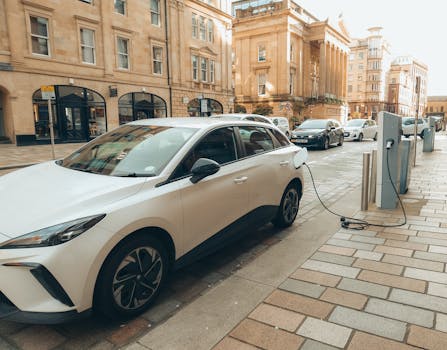
Smart Cities: Urban Trends for 2025
Smart Cities are revolutionizing the way we live, work, and interact with our urban environments. As we approach 2025, it’s essential to understand the latest trends and innovations shaping the future of our cities. Smart Cities are at the forefront of this transformation, leveraging technology and data to create more sustainable, efficient, and livable spaces.
Introduction to Smart Cities

A smart city is an urban area that uses information and communication technologies (ICT) to enhance the quality of life for its citizens, improve the efficiency of services, and reduce its environmental impact. Smart cities aim to create a more sustainable, resilient, and connected community, where technology and innovation are harnessed to address the challenges of urbanization.
Trends Shaping Smart Cities in 2025

So, what are the key trends that will shape the smart cities of 2025? Here are some of the most significant developments to watch:
- Sustainable Energy: Renewable energy sources, such as solar and wind power, will become increasingly prominent in smart cities, reducing reliance on fossil fuels and minimizing carbon emissions.
- Intelligent Transportation Systems: Smart traffic management, autonomous vehicles, and hyperloop systems will transform the way we move around cities, reducing congestion and improving air quality.
- Smart Buildings and Infrastructure: Buildings and infrastructure will be designed with energy efficiency, sustainability, and adaptability in mind, incorporating green roofs, smart windows, and self-healing materials.
- Internet of Things (IoT): The IoT will continue to play a vital role in smart cities, connecting devices, sensors, and systems to create a more responsive, efficient, and personalized urban environment.
- Artificial Intelligence (AI) and Data Analytics: AI and data analytics will be used to optimize city operations, predict and prevent crimes, and improve public services, such as healthcare and education.
Benefits of Smart Cities

So, why are smart cities so important? Here are just a few benefits of this urban revolution:
- Improved Quality of Life: Smart cities offer a better quality of life for citizens, with improved healthcare, education, and entertainment options.
- Increased Efficiency: Smart cities are more efficient, with optimized energy consumption, reduced waste, and improved traffic flow.
- Enhanced Sustainability: Smart cities are designed to be more sustainable, with a reduced environmental impact and a focus on renewable energy sources.
- Economic Growth: Smart cities attract businesses, talent, and investment, driving economic growth and competitiveness.
Challenges and Opportunities

While smart cities offer many benefits, there are also challenges and opportunities to consider:
- Cybersecurity: Smart cities are vulnerable to cyber threats, which must be addressed through robust security measures and protocols.
- Privacy Concerns: The use of data and surveillance in smart cities raises concerns about privacy and civil liberties.
- Digital Divide: Smart cities must ensure that all citizens have access to the benefits of technology, regardless of income, age, or ability.
- Partnerships and Collaboration: Smart cities require collaboration between government, private sector, and citizens to succeed, offering opportunities for innovative partnerships and financing models.






